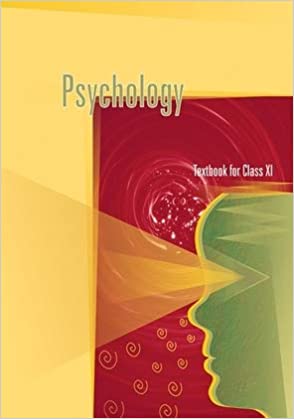- Log in to post comments
Today I am going to provide you an overview of Class 11 CBSE Psychology! Many children opt for this course as it helps build a good base for your Bachelor's in Psychology.
Class 11 Psychology has many overlapping parts with BA 1st Year

The book includes 9 chapters which explain the basics of Psychology.
Today lets discuss about the FIRST FOUR CHAPTERS.
Chapter 1 - What is Psychology?
Talks about the major schools of psychological thought which are structuralism, functionalism, behaviourism, Gestalt school, psychoanalysis, humanistic psychology and cognitive psychology etc.
This Explains that Psychology is a modern discipline to understand the complexities of mental processes, experiences and behaviour of individuals in different contexts.
Some of the major fields of psychology discussed in this chapter are: cognitive psychology, biological psychology, health psychology, developmental psychology, social psychology, educational and school psychology, clinical and counselling psychology, environmental psychology, industrial/ organisational psychology, sports psychology. Interests of psychologists also overlap with social sciences (e.g., economics, political science, sociology), biosciences (e.g., neurology, physiology, medicine), mass communication, and music. Lastly the chapter talks about various jobs in Psychology after your Master's.
Chapter 2 - Methods of Enquiry
Tells us that research is conducted for the purpose of description, prediction, explanation, control of behaviour, and application of knowledge generated in an objective manner. The chapter then talks about various methods of collecting information like case studies, correlation, telephonic interviews etc.
Lastly, we talk about what it takes to be a good psychologist and the limitations of psychological enquiry.
Chapter 3- The Bases of Human Behaviour
Children often find this chapter tricky as it consists of a lot of Biology and rote learning. We talk about the CNS, PNS and Spinal Cord . Then we talk about neurons and the structure of neurons . A chemical called neurotransmitter is released from the axon terminal that carries the message to the other neuron. The limbic system is involved in the regulation of behaviours such as fighting, fleeing etc. It is comprised of hippocampus, amygdala and hypothalamus. We move onto talking about different hormones secreted by glands which effect our behaviour.
Then secondly, culture is considered an important determinant of human behaviour. If refers to the man-made part of the environment. Enculturation refers to all learning that take place without direct, deliberate teaching but instead by just observing implicitly.
Chapter 4- Human development
This chapter goes into details about different stages of human development. Prenatal development may be affected by maternal malnutrition, maternal drug use and some maternal illnesses. It then talks about cephalocaudal and proximodistal trends. According to Piaget’s theory of cognitive development, in sensorimotor stage the child’s gradual recognition of the permanence of objects starts.
During the concrete operations stage, children develop the ability to perform operations on mental representations, making them capable of conservation.
The stage of formal operations is more abstract, systematic, and develops logical thought.
The chapter then talks about the trends and difficulties faced during puberty, adulthood and old age.
This was the first half of the summary of class 11 chapters that one learns that should give a basic background to your studies of Bachelor's.
If you find this content interesting then Psychology is your subject and you should pursue it in school too !!
-Soumya Gulati
